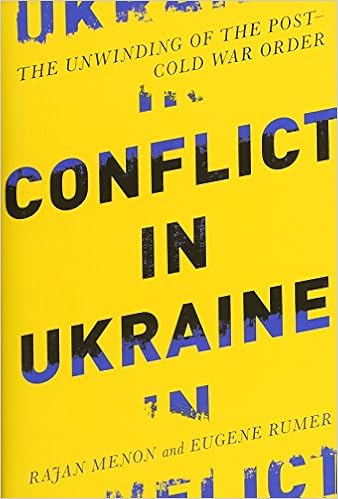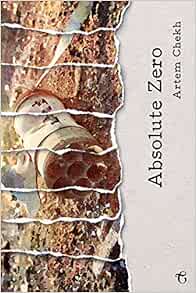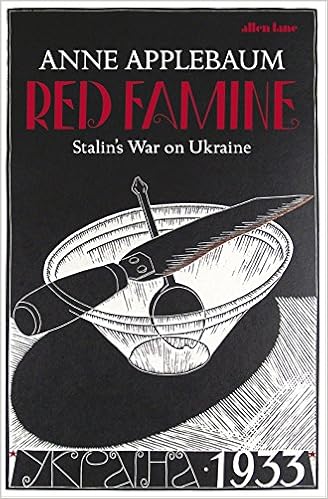20 Books on Understanding Russia's Invasion of Ukraine
Posted by Bijal Shah on
I've recently had several requests from clients on reading recommendations on Russia’s invasion of Ukraine to better understand what is happening there. So, I have curated a selection of non-fiction book recommendations and fiction recommendations. Hope you find it useful in the context of what is currently taking place.
Non-fiction Book Recommendations
1. The Gates of Europe: A History of Ukraine (Non-fiction) by Serhii Plokhy, Professor of History at Harvard University & Director of the Harvard Ukraine Institute.

Best for gaining an understanding of one of the least known large European countries. Takes you back all the way to the 9th century to what it is today and helps us understand the complex relationship between Russia and Ukraine as well as Ukraine and Poland.
2. Between Two Fires: Truth, Ambition and Compromise in Putin’s Russia (Non-fiction) by Joshua Yaffa, New Yorker’s correspondent in Russia.

Between Two Fires shows how authoritarian regimes control, manipulate and force their people to succumb to full control and compromise, so much so that they consciously choose not to change or adapt and simply to give in to the authoritarian state, and this extends to even the smartest and most ambitious of its people.
3. Conflict in Ukraine: The Unwinding of the Post-Cold War Order (Non-fiction) by Rajan Menon and Eugene Rumer

A recent account, this book was written after Russia’s 2014 annexation of Crimea, and discusses the political and economic impact of the brutal conflict.
4. Absolute Zero (Non-fiction) by Artem Chekh

This is a memoir based on the diary of a Ukrainian novelist, Artem Check who fought in Donbas in 2015 and captures the stories of both soldiers and civilians, with the theme of how war brings nothing but pain and suffering and how soldiers endure a harsh and difficult life during combat. The diary has been translated by Olena Jennings and Oksana Lutsyshyna.
5. The Ukrainians: Unexpected Nation (Non-fiction) by Professor Andrew Wilson, UCL School of Slavonic and Eastern European Studies.

An accurately haunting portrayal of recent events shedding a light on who Ukrainians are, their identity, their culture and why they are not Russians – they are an independent, democratic state. Investigating journalism at its best detailing how the nation of Ukraine came to be.
6. Borderland: A Journey Through the History of Ukraine (Non-fiction) by Anna Reid, Kyiv correspondent for The Economist in the Nineties.

The perfect blend of history and travel writing, Ukraine has always been of great strategic importance and has been at war for almost a millennium before. Having found some respite when it finally broke free of the Soviet Union. However as soon as that happened, the Ukrainian people had to face corrupt governments and stage their own revolutions, demanding more equitable elections and a wish to be closer to Europe. Then in 2014, Russia annexed Crimea, invading Donbas. And now again everything is at stake for the Ukrainian people. To work out the complexities of this fascinating nation, Reid brings together reflections from activists, civilians, Holocaust survivors, people who lived through Stalin’s famine, building a picture of how Ukraine’s future and present are shaped by its past.
7. Red Famine (Non-fiction) by Anne Applebaum

A very dark time in Soviet history, is the story of the suffering of the Ukrainian people during the very difficult Soviet-enforced famine when Stalin was in power. Not only this, there was deliberate starvation and a national campaign to bury this deep and important history as though it never happened. Anne Applebaum with great precision investigates what happened, who was responsible and the consequences that can still be felt today. And hauntingly it feels like it's happening all over again with Russia’s invasion of Ukraine. A cycle of repetitive abuse, please be warned, this book might feel traumatic.
8. Chernobyl: History of a Tragedy (Non-fiction) by Serhii Plokhy, acclaimed historian and writer

Winner of Baillie Gifford Prize and Pushkin Book Prize, the Chernobyl Nuclear Plant disaster in 1986 definitely put Ukraine on the map, if it wasn’t already. A gripping story of the Chernobyl nuclear disaster, impeccably researched by acclaimed historian and writer, Serhii Plokhy, details how on 26 April 1986, a reactor at the Chernobyl nuclear power plant exploded. Under 5% of the reactor’s fuel escaped, but even with the small percentage, there was significant contamination experienced by more than half of Europe. Plokhy brings together the stories of firefighters, scientists, engineers, civilians who all come together to achieve a feat that seemed impossible: extinguishing a nuclear fire. Five years later the Soviet Union fell.
9. Chernobyl Prayer (Non-fiction) by Svetlana Alexievich, Winner of the Nobel Prize for Literature 2015

Another shocking account of the Chernobyl disaster by Svetlana Alexievich, the winner of the Nobel prize in literature 2015, chronicles the true stories and testimonies of survivors whose voices and narratives had been previously covered up. The book serves as a stark warning of history repeating itself and what a possible nuclear future would look like.
10. Manual for Survival: An Environmental History of the Chernobyl Disaster (Non-fiction) by Kate Brown, Journalist

A formidable tour de force examining the impact that decades of devastating nuclear incidents and weapons-testing can have on civilisation and specifically the people of Chernobyl, whose truths had been covered up for so long - from the damage of the radiation to lifelong whitewashing.
Brown conducts first-hand interviews across Russia, Ukraine and Belarus to share their stories and force us to confront the painful legacies of a catastrophic nuclear disaster.
11. Midnight in Chernobyl: The Untold Story of the World's Greatest Nuclear Disaster (Non-fiction) by Adam Higginbotham, Journalist

Journalist Adam Higginbotham has written, with incredible narrative storytelling, and detail, what actually happened on that day of 26 April 1986. What started out as a safety check, designed to simulate a blackout power failure became one of the greatest nuclear disasters in history. As a result of both design flaws in the reactor and operators not complying with a test checklist, uncontrolled nuclear reactions took hold that led to radioactive waste depositing itself across both the Soviet Union and various European countries for days.
The result was immediate deaths of many onsite workers and firefighters from acute radiation sickness as well as deaths from cancer of 134 survivors over the next decade. Although it is estimated that the real number is several thousand cancer deaths. What was startling and harrowing was how common these accidents are, and how governments are at the ready to mask the truth as the political fallout is too great a cost to bear for any country with nuclear operations. And that this could easily happen again somewhere else is the message that Higginbotham leaves us with.
12. In Wartime: Stories from Ukraine (Non-fiction) by Tim Judah, War Reporter

Reporter Tim Judah brings a very human angle to the ongoing conflict in Ukraine, the second-largest country in Europe, focusing on the stories of everyday civilians from mothers, soldiers, businessmen, writers, building a portrait of what it feels like to be in a war. Haunting and insightful, this is a harrowing read.
13. A Short History of Russia (Non-fiction) by Mark Galeotti
![A Short History of Russia: From the Pagans to Putin by [Mark Galeotti]](https://m.media-amazon.com/images/I/41tWrGMxQ9L._SY346_.jpg)
Perhaps one of the best books out there to help us understand the Russian psyche. A country that's struggled to establish a central identity or culture, somehow manages to remain a global power, perhaps because of its geographical location as the gateway into both Europe and Asia. And one thing is certain it has significant and deep experience in war, peace and revolution.
Galeotti takes us on a tour of how Russia came to be from the early greats - Ivan the Terrible, Catherine the Great to the legendary Romanovs, the Russian Revolution, the Cold War, Chernobyl, the end of the USSR and of course the rise and rise of Vladimir Putin. The perfect whistle-stop tour to get you on top of Russian history.
14. Putin's People (Non-fiction) by Catherine Belton, Investigative Journalist
![Putin’s People: A Times Book of the Year 2021 – The Story of Russia’s History and Politics by [Catherine Belton]](https://m.media-amazon.com/images/I/51ITo5Ni6oL.jpg)
One of my favourite books on understanding Putin and his kleptocracy, Belton has meticulously researched his rise to power, the way he has organised the oligarchs around him, to give him and the KGB ultimate power. Some of the themes she covers include - the constant changes in the law to allow him and his oligarch club to stay in power forever, sponsorship of extreme politics in Europe, the war in Ukraine and the interference in the US elections where Trump came into power.
Belton in glorious storytelling, narrates the stories of how Putin and other key players came into power, and managed to nationalise major private companies and install Putin's closest allies into power, regardless of experience or expertise.
This is a gripping and frightening account of what could happen when a psychopathic leader creates power structures that could potentially unleash devastation across the globe. A must-read.
15. Bloodlands: Europe between Hitler and Stalin (Fiction) by Timothy Snyder
![Bloodlands: Europe between Hitler and Stalin by [Timothy Snyder]](https://m.media-amazon.com/images/I/51HCymn-uiL.jpg)
One of the most terrifying periods in history, the middle of the twentieth century, the Nazis and Soviets murdered 14m people across Berlin and Moscow.
This book is a harrowing account over 12 years in those 'bloodlands' - Ukraine, Belarus, Poland, Western Russia and the eastern Baltic coast. The annual death toll was greater than 1m civilians. Timothy Snyder with great depth and detail investigates and unpacks the psychology of Stalin and Hitler during this time, including the deadly methods that they employed through the testimony of victims, handwritten letters, notes left on trains and diaries of those who died as well as academic literature. What results is a brilliant examination of one of the greatest massacres in European history. Another must-read.
Fiction Book Recommendations
16. Taras Bulba (Fiction) by Nikolai Gogol Gogol

A historical novella, the book is about the life of Ukrainian citizen Taras Bulba and his two sons, Andriy and Ostap. After completing their studies at Kyiv Academy, the sons return home and get ready to go to war against Poland. Andriy falls in love with a Polish woman and is caught and shot by his father. While Taras himself is eventually caught by the Poles and burned alive. The novella is set in a time when Russia and Ukraine were one country and the context of the book is during a time (mid-nineteenth century) of Great Russian nationalism when Poland was the enemy. Plus the book was written at the heights of great Russian literature, when authors were concerned with philosophical thought and self-examination against cultures of the West. A different perspective on the Russia-Ukraine relationship.
17. Grey Bees (Fiction) by Andrey Kurkov
![Grey Bees by [Andrey Kurkov, Boris Dralyuk]](https://m.media-amazon.com/images/I/414crXylLpL.jpg)
Andrev Kurkov is perhaps Ukraine's most loved novelist and has a unique way of capturing the conflict in Ukraine through the written word and in this story, particularly through the story of a calm beekeeper, set in little Starhorodivka, which is labelled at Ukraine's Grey Zone. Given the backdrop of violence, only two residents live there beekeeper Sergey Sergeyich and Pashka, a school friend-turned enemy. Through the two characters we understand the tension building up in the country as a metaphor for the impending crisis - littered with humour it gives us a sense of the complexities and nuances of the Russia-Ukraine relationship.
18. The Museum of Abandoned Secrets (Fiction) by Oksana Zabuzhko
![The Museum of Abandoned Secrets by [Oksana Zabuzhko, Nina Shevchuk-Murray]](https://m.media-amazon.com/images/I/51tL4Y4JHlL._SY346_.jpg)
This is a big novel in many ways - set over 60 conflict-filled years of Ukrainian history, crossing generations, the novel pulls together life in all its forms from love, friendship, sex and death through the stories of three women who are brought together by a secret from the past. 800 pages long, it takes us right into the heart of Russian history and culture and the totalitarianism that Russians and Ukrainians have had to tolerate for decades and how much the past still influences the present in Ukraine.
19. The Moscoviad (Fiction) by
![The Moscoviad by [Yuri Andrukhovych, Vitaly Chernetsky]](https://m.media-amazon.com/images/I/51wu6eNiYoL.jpg)
This novel transport you to Moscow University where a gathering of writers from Asia and Eastern Europe meet in true literary salon style engaging in intimate conversations about life, literature and Moscow as the Soviet Union around them disintegrates. Hilarious and thought-provoking, it really captures what it was like to be present at this incredibly historic moment.
20. The Odessans (Fiction) by Irina Ratushinskaya

This novel recounts the story of three families in Odessa, Ukraine, and the friendship that sustains them through war, famine, political struggle, and incredible hardship. An intimates look at what families in war-torn Ukraine might currently be facing.
A big hello and thank you for reading! Passionate about literature, psychology, and life I launched Book Therapy as an alternative form of therapy using the power of literature. I train mental health professionals, librarians, teachers as well as readers on using bibliotherapy in their own work through our online Bibliotherapy, Literature and Mental Health course. We also curate reading lists/personalised book prescriptions for clients based on their individual needs. This is our signature personalised reading service.
You can also check out Book Therapy’s other free reading lists and A- Z of book prescriptions (covering both fiction and non-fiction). These suggest books based on your existing life situation (e.g. anxiety, job change, relationship heartache) as well as interests (e.g memoir, historical fiction, non-fiction, crime etc). There’s also a Children’s A — Z of Book Prescriptions. Feel free to check out the blog for more literary gems. There’s also a post on my personal story of how I entered the world of bibliotherapy and book curation.
In this role, I have had the opportunity to publish a book called The Happiness Mindset, and write various literary essays and pieces for newspapers and magazines. I have undertaken bibliotherapy workshops for The United Nations, various libraries in New York and corporate organisations in the UK and US. My book recommendations have featured in the Guardian, Marie Claire, NBC News, Asian Voice, New York Observer, Sydney Telegraph and various other publications. If you are a parent you might enjoy a podcast I’ve recorded with speech and language therapist Sunita Shah on Raising A Reader & Storyteller. And if you’d like to connect, email me at bijal@booktherapy.io or www.booktherapy.io.
Book Therapy is a participant in the Amazon EU, US and Canada Associates Programme, an affiliate advertising programme designed to provide a means for sites to earn advertising fees by advertising and linking to Amazon.co.uk, Amazon.com and Amazon.ca
